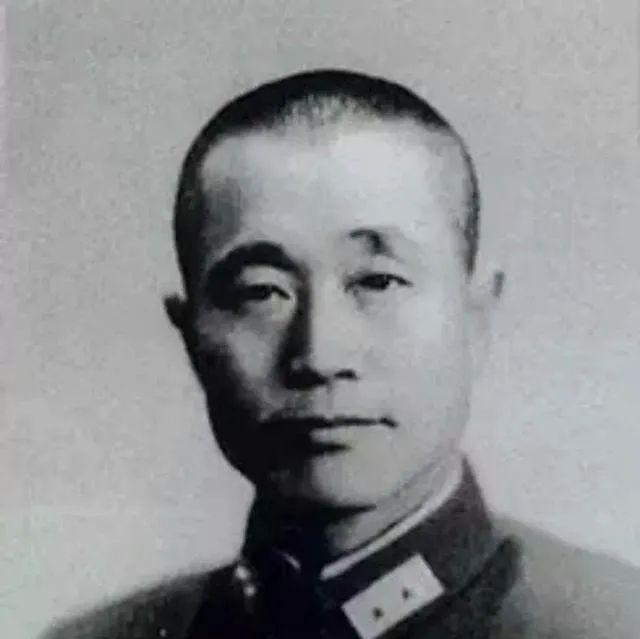When it comes to the Communist Party and the Kuomintang, everyone should understand that there was a period of confrontation between the two parties, and during the period of confrontation between the two parties, the chairman personally wrote a letter to a number of senior leaders of the Kuomintang, and most of the letters were to persuade many senior leaders to abandon the civil war, follow the Communist Party, and fight for the will of the people. Among them, many generals were inspired by the chairman's letter and defected to the Communist Party. But there was such a general, he was very stubborn, from beginning to end very loyal to his post, until finally captured by our army, he did not surrender, his name is Du Yuming

First, Du Yuming's life
Du Yuming was born in November 1904 in Mizhi, Shaanxi Province, where his father was a man from the late Qing Dynasty who participated in activities against Yuan Shikai's claim to the throne; Du Yuming was influenced by his father's active participation in the rebellion from an early age and had a hobby of playing with weapons and guns. Under the strict education of his cousin Li Dingming, in terms of study, Du Yuming was also a "proper scholar", but after entering Peking University, he was angry at the dark corruption of the officials at that time, so he had the idea of saving the country from the army, so he left Beijing and went to the Whampoa Military Academy in Guangzhou to begin his military career.
Du Yuming, who has never been sloppy in his studies, graduated as the first outstanding graduate. Because of his excellent results, he was assigned to the third company of the first battalion of the First Teaching Regiment of He Yingqin as a probationary and quartermaster sergeant.
2. Du Yuming's military career.
Before Du Yuming graduated from the Whampoa Military Academy, he and his classmates participated in the battle to appease the reactionary business group in Guangzhou, which was also the first time that Du Yuming experienced a different scene from the school training, which was a real-gun battlefield fight. In the Battle of Tamsui City, he was known as one of the "members of the death squad", and he also made a lot of achievements.
And the most important thing that can not be ignored is that in the fierce battle of Gubeikou in 1933, he was in the nationalist army, and the battle that began to fight was also full of vigor, under his leadership, the soldiers of the 25th Division of the 17th Army vowed to die and did not retreat, and they attacked the Japanese Kou one after another, showing them the courage and determination of the Chinese soldiers to defend the country to the death.
Later, due to Du Yuming's good leadership, the entire unit of the Fifth Army led by him was very strong in combat effectiveness, and it was no less than other units in terms of weapons, and it quickly became the ace team during the War of Resistance.
At the end of 1939, the battle known as the "Battle of Kunlun Pass" began, and the Fifth Army led by Du Yuming encountered a formidable enemy - the Japanese 5th Division regiment with the title of "Steel Army", which had more elite mechanized equipment than the Fifth Army compared to other teams. At the time of their attack, the Fifth Army also showed no weakness, surrounded the Japanese army layer by layer, and finally knocked down the Japanese regimental commander Masao Nakamura, and the number of casualties among the lower officers reached the largest number of casualties since the War of Resistance Against Japanese Aggression at that Chinese time.
After the Battle of Kunlun Pass, Du Yuming became a well-known anti-Japanese general, but in this battle, our army also paid a great deal of casualties, and in order to give them the greatest commemoration and admiration, Du Yuming personally established the "Monument to the Fallen General of the Fifth Army of the Army" in Kunlun Pass, and described his greatest admiration on the monument.
At this time, he held a large amount of military power, brave and capable of fighting, and was deeply used by Chiang Kai-shek in the liberation war, and he also played the role of a firefighter, but in it, due to repeatedly rushing to the front line to command, day and night, he eventually caused physical injury. He also served as the commander-in-chief of the Northeast Security And the deputy commander-in-chief of xuzhou' "suppression". But his opponents changed from the Japanese army to Su Yu, Liu Bocheng and others, and they continued to go down the wrong path.
In the Battle of Huaihai, the chairman personally wrote a letter of persuasion, hoping that he could surrender as soon as possible, but he was loyal to his position and did not have the slightest idea of surrendering, until he became a prisoner of our army and was imprisoned in a war criminal camp for more than ten years.
However, it has to be admitted that Du Yuming is indeed a person with great military leadership ability, and this aspect is not only manifested in his study, but also in the War of Resistance Against Japanese Aggression he pioneered the idea of modern warfare for the Chinese Army and made a lot of contributions to the victory of the War of Resistance Against Japanese Aggression.